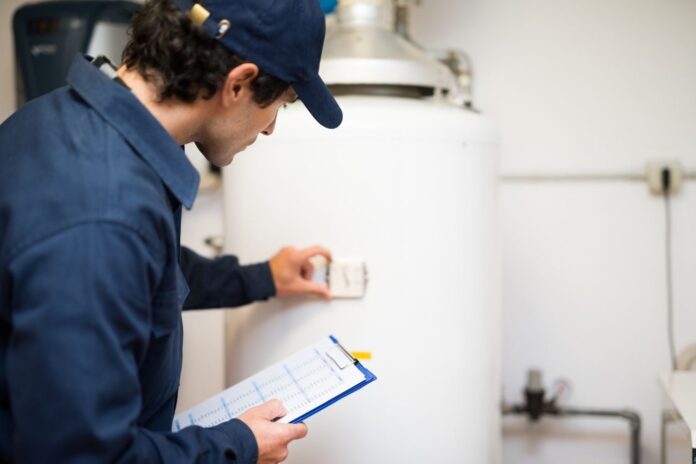You may have noticed that you cannot get hot water, or it’s not as hot as it once was. This can lead to many problems for bathrooms, kitchens, and industrial uses. If your hot water stops working, you need to troubleshoot your plumbing, schedule service repairs through emergency plumbers, and deal with whether or not you can shower in cold water. Hopefully, this article will help you with what to do if your hot water stops working.
Check the Circuit Breaker
If you have a faulty electric water heater, it could be that your circuit breaker is tripped. The very best way to check this is by flipping the breaker off and on. If nothing happens, check to ensure there aren’t other appliances that might have tripped it first. If you’ve already reviewed all of these things and still can’t get the breaker back on, call an electrician to help diagnose what’s wrong with your circuit breaker and fix it properly.
Make Sure You’re Getting Power to Your Hot Water Heater
If you have a power outage, you may not be able to get any hot water. Make sure that your electric power source is on and working before you start troubleshooting. If you’re getting no hot water or cold water with some heat, it may be that your power has gone out. Make sure that there isn’t a power outage in your area. If there is an outage, wait until it’s over before trying again.
Test and Relight the Pilot Light
Check the pilot light on your water heater if your hot water has stopped working. The pilot light is normally located at the top centre of the gas control panel on your water heater. If you don’t know where it is, check your manual or look for an orange glow from around the top of the tank when you open the door.
If the pilot light has already gone out, relight it using a match or a small torch lighter. If, after several tries, it still doesn’t relight, turn off all power sources to your water heater before proceeding further with testing.
Check Your Thermostat Settings
A thermostat regulates the temperature of the water coming out of your faucets, and it turns on the heater when needed and turns it off when it reaches a specific temperature. If your thermostat is set too low or high, this can cause problems with your hot and cold water supply. Check the settings on your thermostat and make sure they’re set correctly.
Take a Look at Your Water Filter
If you have a filter on your faucet and it’s slow flow, remove the aerator from the end and look inside for debris clogging it up. Clean out any residue with warm water, then put everything back together again. This may solve your problem quickly and easily and save money on an expensive service call.
Check the Water Heater Valve
The other thing you should do if your hot water stops working is check the valve on the tank. This is usually located near the bottom of the unit and has a small pipe that connects to your plumbing system. If this valve isn’t turned on, no water will flow through your pipes, and you won’t have any hot water.
Try a Different Faucet
If you have multiple taps in your home, try turning on a different one. If the waterworks, it means there’s a problem with the tap you were using. You can either call a plumber or fix it, depending on the problem’s severity. If the water doesn’t work at all, then you may have a bigger problem on hand. In this case, the best thing to do is call an emergency plumber and let get to them take care of it for you.
Inspect the Pipes for Leaks
Next, inspect your pipes to see if they are leaking anywhere. You might notice a drop in water pressure in some regions of your house when there is a leak somewhere. If there is no leak, check for any obstructions in your pipes that may prevent them from carrying water properly. This could include tree roots or other debris that has been lodged inside of them over time.
Reset the Water Heater
When your hot water suddenly stops working, there’s a good chance that something went wrong with your system. First, try resetting your water heater by turning off everything connected to it and waiting for 10 minutes before turning it back on again. If that doesn’t work, try cycling through each of your faucets individually to see if they produce cold or warm water. This can help identify which part of your system is affected by the issue.
Conclusion
The most vital thing to remember when dealing with a hot water problem like this is to stay calm. Whether or not you can seal off the leak or not on your own, it’s worth keeping in mind before calling a plumber to fix it. While many problems might seem big and scary at first, they’re easier to solve than they seem. And even if they aren’t easy to solve on your own, you can reduce the stress associated with fixing the problem by staying calm and keeping these troubleshooting tips at the back of your mind.


















